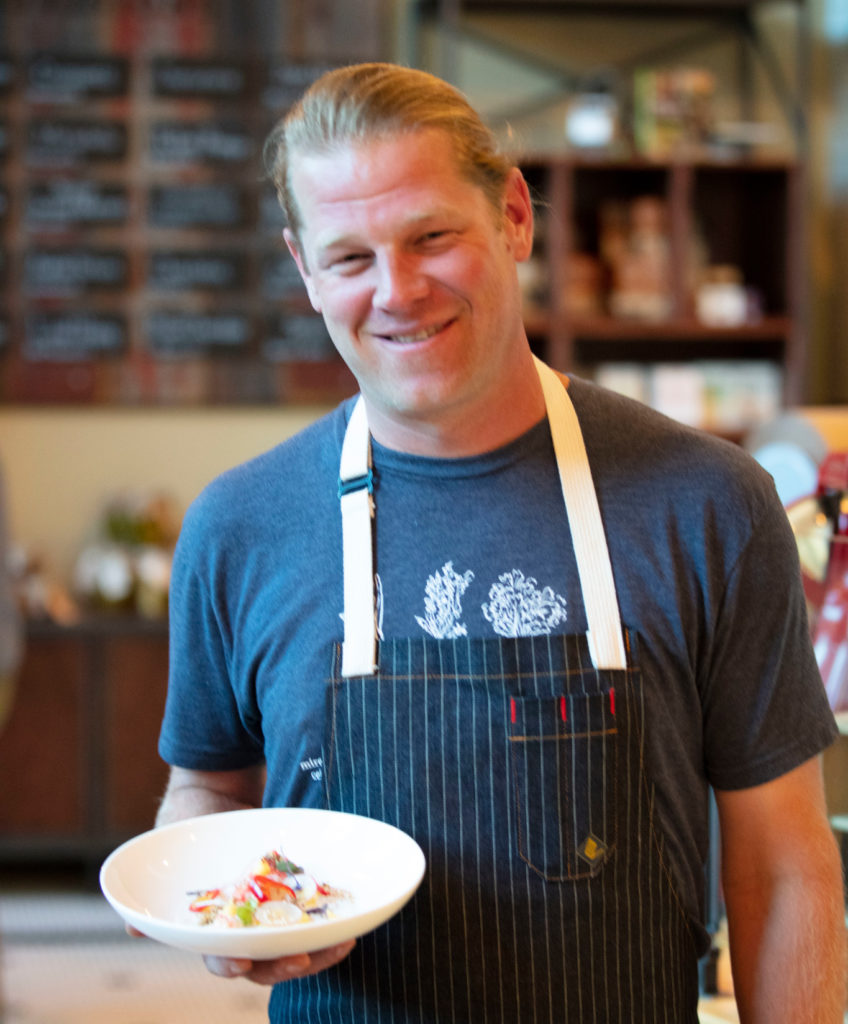
Everyone has a spark that ignites their passion. For Alex Seidel, his interest in cooking began to germinate during his high school years. To help supplement his single mom’s income, Seidel worked out of necessity. He traces his love for restaurants back to his first job as a dishwasher at a local restaurant. Unlike many of his peers who viewed similar positions with disdain, Seidel thrived in this environment, filled with teamwork and camaraderie. Decades later, as an award-winning Denver chef and restaurant owner, Seidel still values the importance of having collaborative and cooperative chefs, management personnel, and waitstaff.
Alex Seidel’s Early Chef Experience
While his early restaurant experience initially introduced him to the hospitality industry, Adam Medina taught the basics to the young chef. With Medina’s assistance, Seidel learned the critical components of recipe development, how to select appropriate ingredients, as well as basic cooking techniques. Decades after they lost contact with one another, their paths crossed when Seidel reached out to Medina for assistance at a California cooking event. After rekindling their relationship, Medina asked if his son, Adam Medina, Jr., could learn to cook in Seidel’s Mercantile kitchen. Seidel agreed, having felt honored to teach his mentor’s son.
Midwest & West Coast
Before arriving in Colorado, Seidel enjoyed restaurant opportunities in the Midwest and along the West Coast. In Wisconsin, he became familiar with industrial agriculture and general farming, while in Oregon he was able to take advantage of the wonders of the ocean and the concept of farm to table. Seidel’s culinary horizons expanded further while residing in California, “the salad bowl of the world.” He happily visited farmers’ markets daily so he could source the best ingredients possible. This experience was the impetus for purchasing a Larkspur, Colorado farm in 2009. Seidel’s farming endeavors are an incredible source of animal products and produce for his restaurants. Even though a greenhouse and hoop houses offer the opportunity for a year-round growing season, Seidel still needs to purchase items from outside sources to keep up with his restaurants’ demands.
Colorado High Country
When working as a chef at Vail’s Sweet Basil, Seidel had to modify his cooking techniques for high altitude cooking. Instead of the usual point of 212 degrees, he experienced boiling between 202 and 207 degrees and quicker evaporation times due to a drier climate. Keeping these things in mind, he adjusted his techniques to longer cooking times and increased the oven to a higher temperature so that baked goods would not become too dry. When it came to his favorite pasta dishes, he altered the amount of flour and tended to add more water.
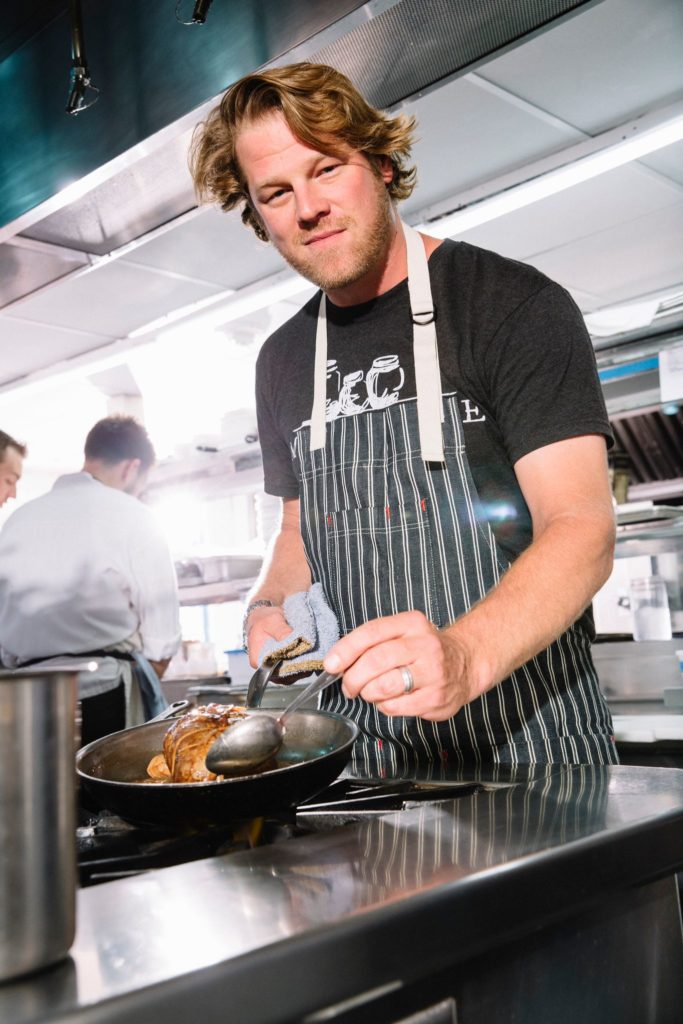
Alex Seidel’s Entry into Denver’s Culinary Scene
Opening a brand-new restaurant is a huge endeavor. When Seidel decided to do this in Denver, he encountered two significant challenges. Little known chefs with unproven track records do not have an easy time funding restaurants. The initial investment, coupled with excessive security deposits, cause many to become discouraged. Seidel was lucky to have a friend who was willing to invest in his dream.
Another potential obstacle was his ability to hire the right team. Seidel’s belief that “successful restaurants are about people” could not be realized with a weak staff. He worked hard to select a group of people who had the same culture with a shared vision.
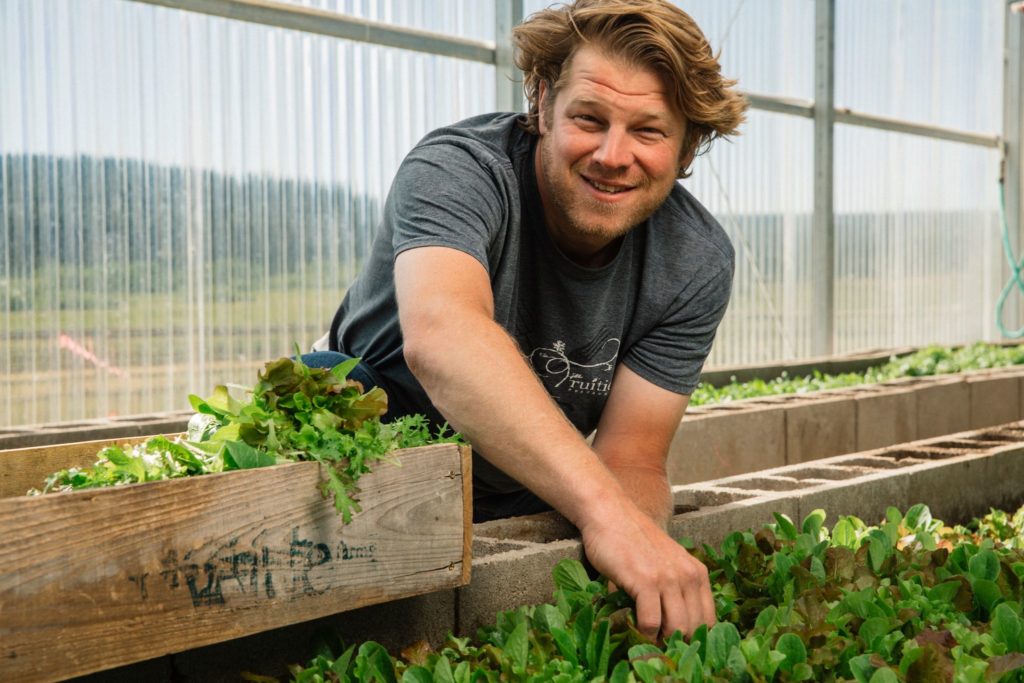
4 Keys to Alex Seidel’s Success
When Seidel looks back on his notable accomplishments, he singles out four things:
- Education—Before accepting the position as executive chef, Seidel patiently took the time to absorb the art of cooking. For approximately 20 years (1987 to 2007), he delved into learning about food and cooking techniques. Along the way, Seidel realized that to be an accomplished chef he had to be a great teacher. Seidel established a special rapport with his restaurant staff by sharing what he learned.
- Consistency—In a quality kitchen environment, speed in completing all of the preparation, cooking, and plating steps takes a back seat to consistency. Using his critical eye, Seidel demonstrated to his staff the importance of seeing a plated dish through the eyes of the consumer.
- Lack of Complacency—People who reach the pinnacle of their career at a young age sometimes become satisfied with their accomplishments and choose not to make any further efforts. Seidel takes the opposite approach. He actively strives to do better each day since he realizes that there are always areas to improve. “Every day is a new day.” He is intent on “making people happy through food.”
- Team Culture—Positive aspects of Seidel’s food journey spill over into his daily practices. Having a positive work environment helps his staff remain united in their mission to create quality meals. This experience enhanced his ability to transmit the importance of teaching his employees the importance of food sourcing and farming methods.
Alex Seidel Response to the COVID 19 Pandemic
Fortunately, Seidel entered the pandemic era with a healthy business model. This stable position allowed him to chart out his restaurants’ future. He furloughed hourly employees while the restaurants’ management teams were paid. When his restaurants didn’t serve food in their dining rooms due to the pandemic, he continued to provide meals to his restaurant team.
As Seidel examined his daily practices, he realized that his team was already well versed in appropriate sanitation procedures and the ability to cope with unexpected conditions. The restaurants had no problem conforming to the new regulations. The most difficult aspect of running a COVID-19 kitchen is “how to wear a mask in a 100-degree kitchen.”
Now that Denverites and visitors can dine in his restaurants, Seidel anticipates that they will appreciate his new service model— an elimination of gratuities. By altering this structure, compensation for all restaurant workers will be more equitable. Through tips, servers often made considerably more than experienced cooks and management. Now salaries will correspond with experience levels.
Seidel is fortunate that the community supported his take-out foodservice and stood by his side during the early stages of the pandemic. During a tumultuous time, Seidel offered a way for people to feel happy through food.
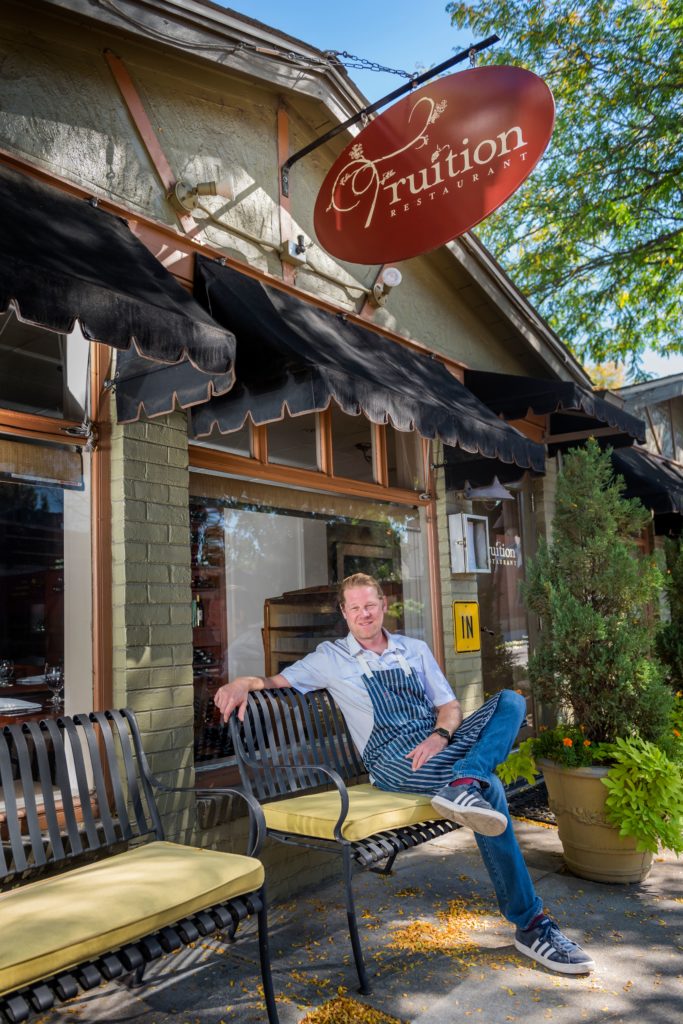
Chef Seidel’s Denver Restaurants
For those unfamiliar with the Denver restaurant scene, Seidel is one of the city’s top chefs. He was awarded the 2018 James Beard Foundation Award for Best Chef: Southwest. He created Fruition Restaurant, Fruition Farms, Colorado’s First Artisanal Creamery, Füdmill, Chook: Charcoal Chicken, and Mercantile Dining and Provisions.
Would you like to try one of Chef Seidel’s recipes at home? Here is a link to his Pasta Carbonara wot Cured Pork Belly and Handmade Cavatelli.
BIO
When Sandy isn’t trekking or writing in the Colorado, she is traveling. She has visited more than 40 countries and lived as an international teacher in Bangalore, India. Sandy’s award-winning book, May This Be the Best Year of Your Life, is a resource for people contemplating an expat lifestyle and living outside their comfort zone.
Sandy’s lifestyle and travel experiences are frequently shared with international and domestic online sites and print media. She has contributed stories to Hemispheres, Destinations Magazine, KUHL’s Born in the Mountain blog, Grand Magazine, Wandering Educators, Golden Living, AARP, Hadassah magazine, Localliz, One Travel, Miles Away, Canadian Jewish News, Getting On Travel, Far and Wide, Colorado Parent, Traveler Confidential, Family Circle- Momster, and others.

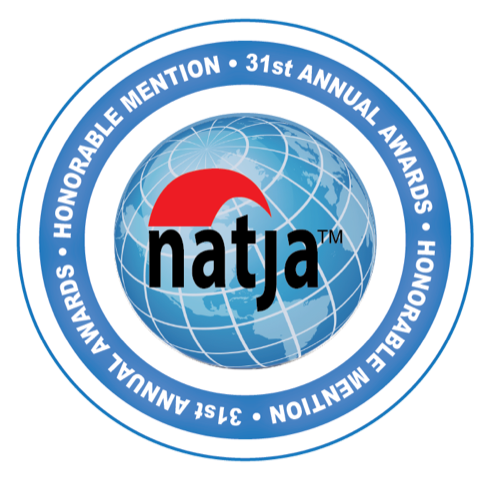
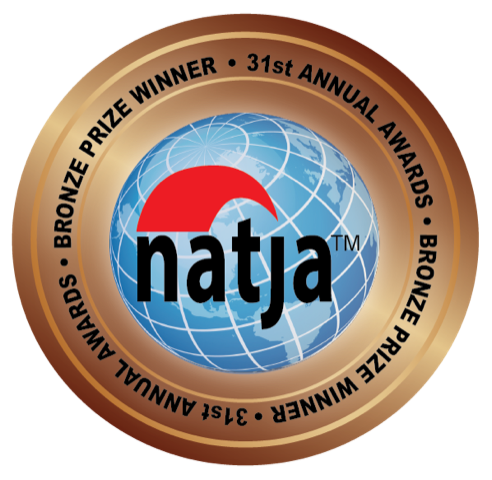

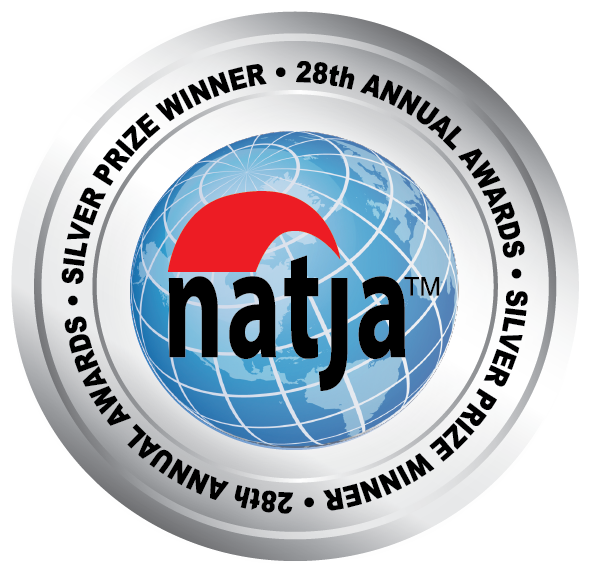
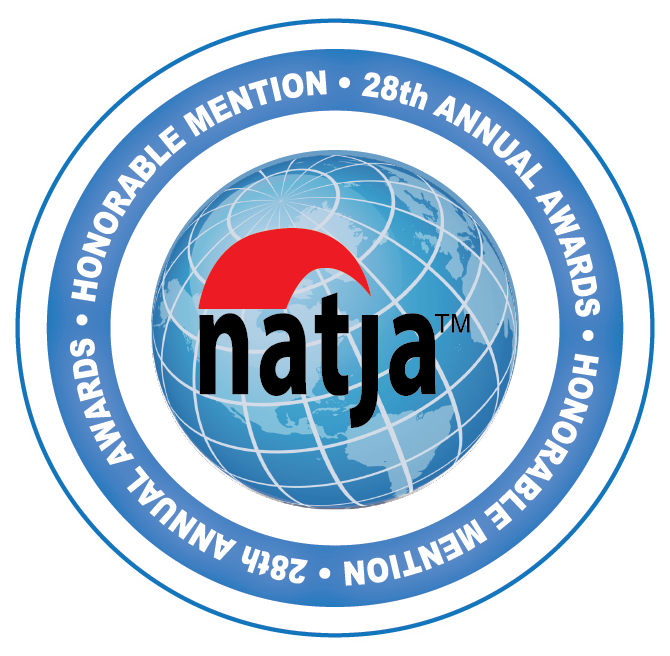







Leave a Reply